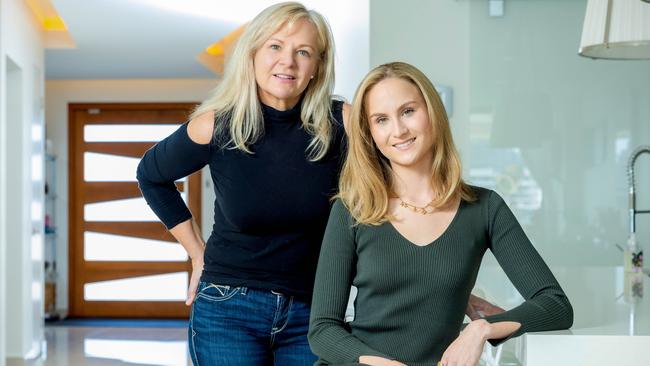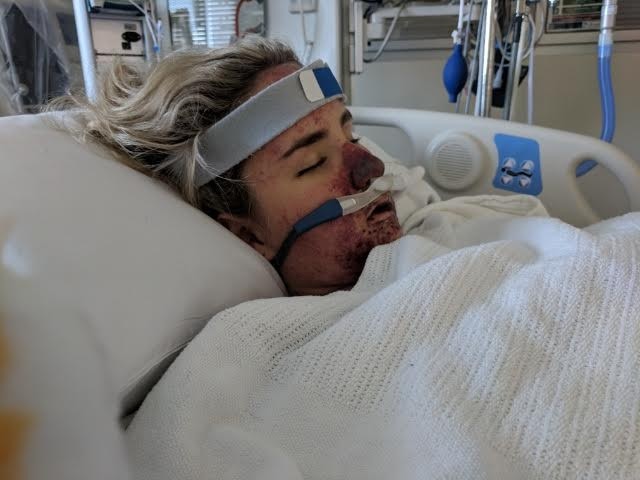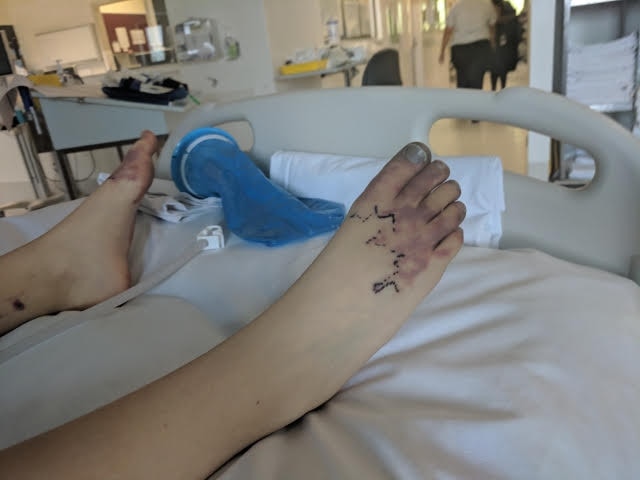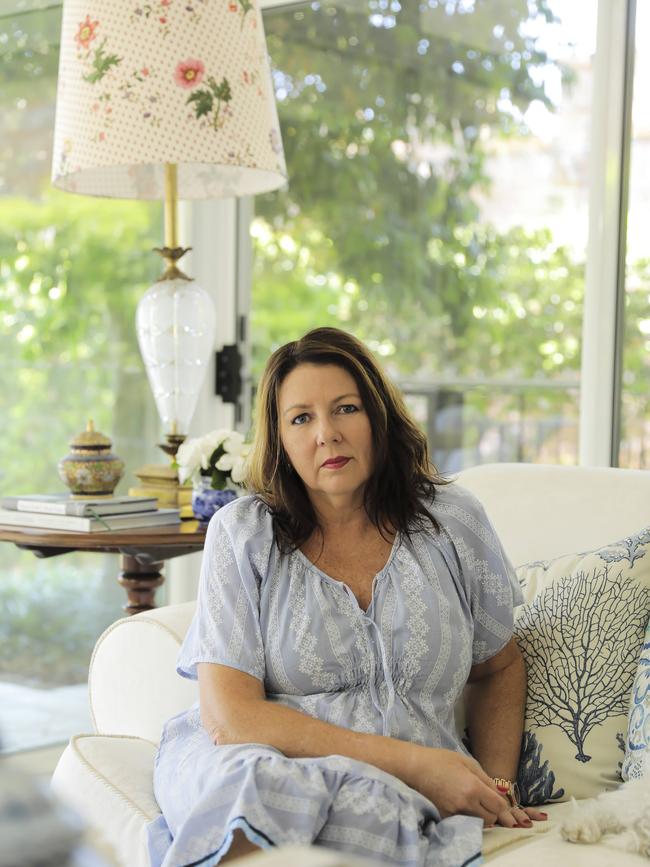Influenza, meningococcal cases surge amid alarming drop in vaccination rates
The cost of living crisis is forcing Queenslanders to skip lifesaving jabs, as survivors of one horror disease call for free vaccinations.
QLD News
Don't miss out on the headlines from QLD News. Followed categories will be added to My News.
The cost of living crisis is forcing Queenslanders to skip lifesaving jabs to protect against Meningococcal and influenza as cases of the deadly diseases surge for a second consecutive year.
While Queensland offers every child aged 12 months and every Year 10 student free immunisation against meningococcal strains A, C, W and Y, those wanting to vaccinate against the deadly MenB strain must fork out $106.50 at their local general practitioner for the jab.
Doctors and health experts, who have noted a drop off in MenB vaccinations, have now reignited calls for the state government to subsidise the expensive shot, saying the average Queenslander can no longer afford to protect their health.
“The middle class region will often not pay for the vaccine because they also mistakenly assume that because the governmentisn’t recommending it that its not needed,” Chair of the RACGP Rural Council Dr Michael Clements
“We (GPs) do bring it up, but it is expensive, and with all these pressures it’s a big burden and a burden on the health system.
“Government’s are trying to save money where they can … and you’ve now got an interesting situation where your health outcomesare directly linked to your financial ability to pay.”
The latest immunisation data revealed Meningoccol vaccination rates have been steadily declining in Queensland since 2021 but MenB shots are not tracked because they are not part of the Federal Government-subsidised national immunisation schedule.
MenB kills one in ten people and causes hundreds of hospitalisations in Australia each year.
South Australia is the only jurisdiction in Australia to offer the MenB vaccine for free, with the Federal Government yet to add the jab to the National Immunisation Schedule.
Director of infectious diseases at Mater Health Services Dr Paul Griffin said Queensland could and should follow in South Australia’s footsteps and “remove the financial barrier” to vaccination.
“That would make a huge difference, and South Australia has really taken the lead there,” he said.
“The fact that were seeing the dominance of MenB cases - the other (IMD) vaccines are doing their job and MenB is clearly the one we don’t have higher protection of.”
But a spokesman for Health Minister Shannon Fentiman said Queensland cases could not be compared to South Australia’s outbreak prior to the introduction of the MenB vaccine in 2017/18.
South Australia recorded 371 cases over 18 years, including 34 cases in 2018 - double Queensland’s current case count of 16.
“Queensland has not experienced an outbreak of MenB, like that seen in South Australia, for over 20 years,” the spokesmansaid.
“The Minister will always work with health experts and the Federal Government to make decisions that best meet the healthneeds of Queenslanders, including on vaccines.”
SURVIVORS CALL FOR AN END TO KILLER DISEASE

Phoebe O’Connell – who battles trauma and lifelong medical issues after being struck down with meningococcal – says it is “grossly unfair” that Australians have to pay to be fully vaccinated against the “horrific” disease.
Ms O’Connell contracted meningococcal three days before her 18th birthday party and was not expected to live.
Her organs began shutting down and her extremities turned black with septicaemia.
“Meningococcal is horrific – you can be healthy at breakfast, dead by dinner,” said the 22-year-old, who lives with her parents and sister in Bulimba. “I have a massive fear of being left alone, and I want to run away from my own body – I don’t feel safe in it any more.”

Ms O’Connell said governments had their “priorities wrong” if they refused to fund vaccines against all five strains – A, B, C, W and Y.
“B is the most prevalent strain now because it is too expensive for many families, and that is grossly unfair – South Australia funds B so why not Queensland?
“The costs of my ongoing care outweigh the costs of getting vaccinated, and that’s a burden on the health system.
“Whenever I hear about some young person dying from meningococcal, I just ask, why is this still happening?”

Ms O’Connell lost her spleen and kidneys and takes a raft of immunosuppressant drugs following a transplant in 2019 when her mother Katy O’Connell, a former intensive care nurse, gave her one of her own kidneys.
Ms O’Connell was vaccinated against B and C but contracted the Y strain in 2018.
Younger sister Chloe had the combined ACWY jab through a government-funded program for year 10 students while at All Hallows’.

Dianne Leybourne, who contracted the B strain at age 53 after attending a flower festival, described meningococcal as “life destroying”.
“I am not the same person, and can no longer work,” said Mrs Leybourne, from Brisbane’s western suburbs.
“I have chunks of my life that are gone – my memory is an ongoing issue.
“I still have nightmares and wake up screaming, with fear that I’m dying.”
Mrs Leybourne said it was “ludicrous” the B vaccine was not funded.
“They spend all this money on free Covid vaccines but they won’t do the B vaccine. To me that’s illogical.”
MENINGOCOCCAL IN QUEENSLAND
Meningococcal cases in Queensland are currently 60 per cent higher compared to 2022 and 150 per cent higher than in 2021.
Fourteen of the infections recorded so far this year have been cases of serogroup B, the strain of meningococcal with the lowest vaccination rate, according to doctors.
The MenB strain also dominated cases in 2022 and has a 5-10 per cent death rate.
Gold Coast woman Bella Fidler was aged just 24 when she died of the MenB strain in April.
Infectious disease expert Dr Robert Booy said IMD infections were likely rising again due to increased social mixing post-pandemic and Influenza outbreaks.
Influenza rates have risen substantially across the country, with Queensland recording more than 27,000 cases this year.
Meanwhile, Queensland has the second lowest flu vaccination rates in the country, particularly for children aged between 6 months and five years (9.3 per cent).
Vaccination rates were even lower for kids aged 5-15 (7.9 per cent), the same age group with the most flu infections.
“When you get flu you’re more likely to develop meningococcal,” Dr Booy said.
“MenB is by far and wide the most common (strain), even more so at present, making up 80 per cent of current cases.
“South Australia’s vaccine program proved effective... were lagging behind the rest of the world.”
While IMD cases dipped during Covid lockdowns, vaccination rates for the free MenACWY jab have been steadily declining in Queensland since 2021.
Data provided by the Australian Immunisation Register shows Queensland’s MenACWY vaccination rates have also remained below the national average for three consecutive years.
Current health advice recommends children aged 11 and above receive the MenB vaccination however, as the vaccination is not part of the national immunisation schedule, it is unknown how many Queenslanders have received the jab.
Chairman of Meningitis Centre Australia Bruce Langoulant is a veteran advocate for immunisation against meningococcal after his daughter contracted the disease in 1989.
He has since lobbied the government to provide the MenACWY vaccine to Australians for free and says it’s disappointing that MenB is yet to be added to the national vaccine schedule.
“Meningococcal has bounced back, it’s sneaking up on us,” Mr Langoulant said.
“I’ve said to the (health) Minister, tell me what number cases need to be at before we do something about MenB.
“We seem to need a catastrophe to take action. Add it to the schedule.”
The Australian Department of Health said the Pharmaceutical Benefits Advisory Committee (PBAC) last looked into adding MenB to the schedule back in 2019 but recommended it only become freely available to First Nations children and those with specific medical conditions, not the general population.




